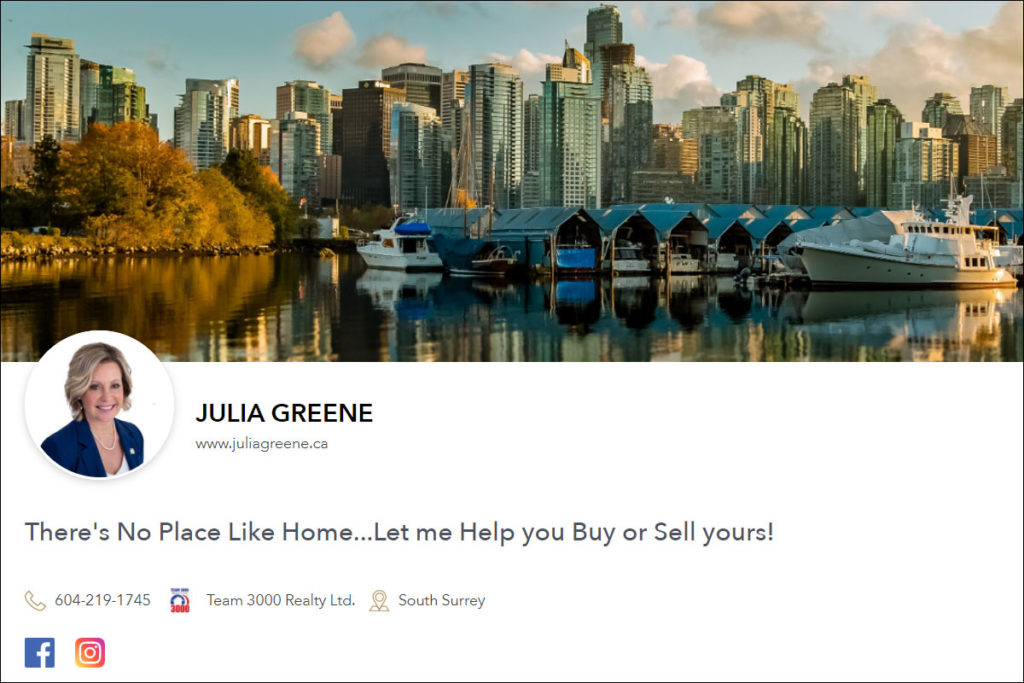There has been a widespread debate between agents about whether they still need a website. Some believe there is no need to put the effort into a time-consuming and expensive avenue to promote their real estate business. The thinking is that the same outcome can be obtained from social media. Others reject a personal website idea as they find it unnecessary if they already have a profile on their brokers’ site.
Proponents of websites for real estate agents believe agents need a website to market themselves effectively. But even amongst these agents, some have websites to keep up with other realtors without a clear idea of utilizing them best.
For those who think marketing in real estate is just about sending mass emails and promoting yourself in newspaper and magazine ads, it is time to reconsider.
Agents need a website to promote their business online. Read on to find out why.
A Foundation for Marketing Efforts
To market your services online, you need a foundation that all your marketing efforts will lead back to. Let us say you want to use online ads. Without a real estate website, where would you send the prospects to learn more about you? What is your phone number or email address? That is not going to happen. What if your social media followers need to learn more about you and your services? Would you send them to your profile on your brokers’ website? The information there is not going to be personal or informative enough. How would you let your audience subscribe to your newsletters?
This is where your personal real estate website comes in handy.

Online Presence / Authority
People generally have developed a habit of checking things out on the Internet before paying for them; real estate agents are no exception. Before choosing a realtor and working with them on one of the most significant milestones of their lives (buying or selling a home), people will go online and research the realtor. From a bit of internet sleuthing, they can get ideas about the realtor’s quality of work and what previous clients think of them. After all, money is precious, and people take care when spending it.
An agent without a website seems odd regardless of whether the websites themselves are helpful. A website can create a sense of authority for the agents, especially for more extensive listings. Why would anyone leave their huge property to a realtor who does not own a website? However, having a real estate website won’t do magic and won’t turn you into a real estate guru overnight.
Becoming a Go-To Resource
Designing a real estate website for realtors takes money, but what does it take to offer relevant, compelling, and valuable content? This is the challenging part that discourages a lot of agents from starting their own website sporting a blog section.
In today’s competitive market, you need to provide your prospects with valuable information: the answers to their questions, so they think of you as a realtor who knows their stuff.
A website will allow your prospects to learn more about you, and coupled with the valuable content you provide, your prospects will get to know you. This confirms they will have made the right choice if they make you their agent. Information like Home Buyer Tips and Tricks will educate your audience and introduce you as someone who can be trusted.
Owning Your Personal Space on Your Real Estate Website
Some claim their broker has a website with great domain authority. And they have a profile on it. So why go through the gruesome task of creating a personal real estate website? Well, there are two reasons for this:
- Your profile on your broker’s website is usually limited to features like listings, testimonials, a bio, and a home search. You have to make do with what is available. If there is a feature you would like to have, there is nothing you can do. Maybe you would like a home valuation landing page or other landing pages? Unfortunately, your profile on your broker’s website will not be able to help.
- Second, you compete with all the other realtors working for your broker on its website. Somebody searches for a realtor, and your name may not even appear. In contrast, however hard it might sound to pull off technically, your website can be optimized well enough to be found by search engines. It is more work, but it is possible.
Inbound Marketing
Gone are the days when outbound marketing was the king of promoting and advertising. These days, such approaches are becoming less and less popular. With many outbound marketing bombarding audiences with thousands of marketing messages daily, the audience no longer pays attention. They filter out what they consider just another ad trying to sell them something.
Realtors and other professionals in business need to take on inbound marketing approaches that try to get the audience genuinely invested in the business. This is far more effective than shouting at them to buy.
As a realtor, you can provide valuable and compelling information in the form of articles, blog posts, etc. That cannot be done on your brokers’ website.
Going Hyperlocal
Agents who reject the idea of personal real estate websites claim their own personal website will have no chance of competing with big names like Zillow, Realtor.com, etc. But you do not need to do so. Your website will provide you with a chance those websites cannot by focusing on a specific area. These websites are spread too thin and cannot cover all the areas as thoroughly as your own website can. The big sites do not know or do not care about the details or what is happening in different neighborhoods. Does it mean such details are not important? The truth is clients care about the details of the neighborhood they will move into.
Detailed information available at hyperlocal real estate agents’ websites can answer all the questions a prospect might be wondering about. There is no way such information can be found on Zillow and other big names.
Improved Online Search
Social media sounds promising, as it seems everybody is there. So why have your own website? However, there are some issues with social media. For example, the internal search feature of Facebook fails to meet the needs of people looking for specific services or content. Furthermore, the content you share on Facebook is not easily found in search engines like Google.
What happens when someone searches for realtors in your city? Will your name show up there on social media channels? If you do not have a website for yourself, you can only hope your name shows up on your broker’s website on SERP.
Having your own website does not mean you will be shown on Google’s first page as many other realtors are trying to show up on the first page, but if you go hyperlocal and target long-tail keywords, you have a chance. You can rank for more competitive keywords with some work, but it won’t happen overnight.
Improved Branding With Your Own Real Estate Website
To make it as a realtor, you must make your own brand. Your broker’s website will not help much, as the audience will get to know your broker, not you. Even if you create awareness around your brand on your broker’s website, it is not your best option as you might not work with that broker forever. Therefore, your audience must recognize you, not just the broker.
With your own real estate website, you decide how to brand yourself. You can control how you are portrayed to potential customers. Even if a broker’s website allows you to have a template-based profile, you will have no control over it. Many clients find their agent through referrals, but how do they contact that realtor? By googling their name.
Capturing Leads By Real Estate Websites
Lead-capturing landing pages are one of the best features you can incorporate into your real estate website. At the beginning of your career as a realtor, you may not have a lot of contacts on your mailing list. But your website allows you to offer free content through mail gating. That is, you are asking visitors to provide you with contact information and, in return, allowing them to download something valuable that answers their questions.
Being Easy and Affordable
Since technology has recently made the internet more accessible, advanced, and credible, websites have become much more affordable. Additionally, many consumers now make purchases after watching branded social videos. What this means is having a personalized website as a realtor is an easy way to market to this new wave of online buyers. Furthermore, there are many great real estate marketing companies, such as roomvu, which offer customizable websites that are convenient and affordable compared to others on the market.
roomvu Agent Websites
The roomvu Platinum Package is designed keeping professionals like you in mind – it’s not just about having an online presence but about standing out, being memorable, and adding genuine value to your audience. Here are the steps you need to take to get your own website up and running. Read more in the article below:
Takeaway
There is no question that a website is necessary for realtors despite social media or their profile on their broker’s website. Your own branding can be done optimally on your own website only. Furthermore, you need a base for your marketing efforts to lead back to. Although using social media to promote your brand seems enough, without a website, chances are you will have difficulty introducing yourself as a realtor who handles remarkable properties. People tend to go online and search for the realtors they have been referred to. If you do not have a website, it is time to create one. You don’t have to start from scratch, though. We at roomvu can get you started with Agent Profiles.
What features should a real estate website have?
Many features are needed for a real estate website, including testimonials, improved and easy property search, home valuation landing pages, a thorough bio section, great deals of valuable content, a quick and convenient chat box, etc.

